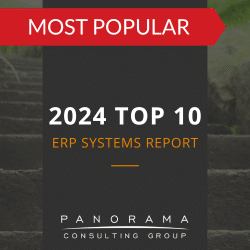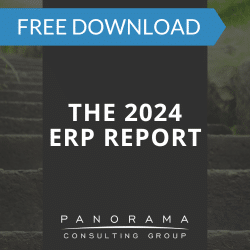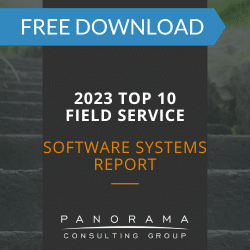When you’re in the middle of an ERP disaster, the idea of taking your case to court can heap stress onto an already-frustrating situation.
It’s no secret that ERP lawsuits are expensive and risky. In addition, most judges and jurors don’t understand the intricacies of ERP implementations. As such, court decisions are sometimes inconsistent and subject to arbitrary factors because there are typically many reasons for an ERP failure.
As you attempt to salvage your ERP project, all these factors can prove daunting. That’s why it’s important to consider if your case can be settled outside of court.
5 Signs Your ERP Disaster Should be Settled Outside of Court
1. There Were Mistakes Made on Both Sides
Sometimes, your ERP vendor is fully to blame for the project’s demise. Other times, it isn’t quite that simple.
In most ERP implementations, omissions and mistakes are made by both the customer and the implementor. If you go to court in this kind of situation, it could wind up doing more harm than good.
How? Consider what would happen if the defendant could convincingly identify those omissions or mistakes to deflect blame from themselves onto you. This could mean losing even more money and it could damage to your company’s reputation.
If there were issues and errors on both sides, then it’s best to consider settling your ERP lawsuit out of court.
A Large Governmental Entity's Failed Implementation
2. You’re Having Difficulty Proving Intentionality
Did the vendor deliberately set out to deceive you? Did they knowingly present false information or purposely misrepresent their product? More importantly, can you prove it?
If you lack conclusive evidence of ERP vendor misrepresentation, or if there is any question at all about the vendor’s motives, then you should consider a settlement. Without evidence, the judge might conclude that any “ERP fraud” was actually an honest misunderstanding.
3. The Vendor Maintained a Clear Change Log
Did your ERP project run longer than your anticipated timeline or cost more than you planned? If so, you might think you have a viable lawsuit on your hands. However, it’s critical to understand the reasons behind timeline and budget variance.
The reality is that most ERP implementations run over budget and behind schedule, and the blame doesn’t always land squarely on the vendor’s shoulders.
In fact, while the vendor may have clearly stated their assumptions and scope at the beginning of the project, many factors may have changed during the project. These might include factors like unexpected resource constraints or changing business needs.
Many vendors clearly log these changes so there is no question as to the order of events and who initiated them. If this is true of your vendor, then consider settling out of court. These change logs could work against you and make your case more difficult to prove.

4. Your Project Issues are Highly Technical and Difficult to Understand
You might have an intimate knowledge of every error that was committed during your ERP implementation. You might even find an ERP expert witness who can attest to these issues and explain how they led to project failure.
However, all the technical facts in the world may not be able to help a judge or jury understand (and properly decide) your case if they’re unfamiliar with how ERP systems work.
If you anticipate that a judge or jury will struggle to understand the details behind the technical issues, it’s best to avoid the hassle of preparing a case only to be met with empty stares.
5. The Potential Litigation Costs Nearly Outweigh the Benefit of a Favorable Verdict
Are you hoping to earn back some of the money you lost from your ERP failure? If so, make sure to crunch the numbers first. You may find that the costs of pursuing litigation outweigh any amount of money you’d gain from a favorable verdict.
Start by estimating the costs of conducting a full lawsuit. Make sure to consider all fees and out-of-pocket costs, including:
- Lawyer fees
- Research and discovery
- Expert witness testimony
- Deposition of employees
- Preliminary hearings
- Rebuttals
- Court testimony
A full-scale lawsuit can take months or years to complete and consume hundreds of thousands of dollars. If the potential lawsuit costs outweigh the benefits, then consider settling out of court.
Successfully Navigate and Redirect Your ERP Disaster
When you’re in the throes of an ERP disaster, going to court might feel like the only way out.
However, it’s important to weigh all of the considerations before jumping to this decision. In many cases, you’ll find that it’s easier, quicker and less expensive to settle your lawsuit outside of court.
Looking for ERP consultants to help you navigate this decision? Our team is here to help. We can analyze your case and help you determine the best path forward. Request a free consultation below.














